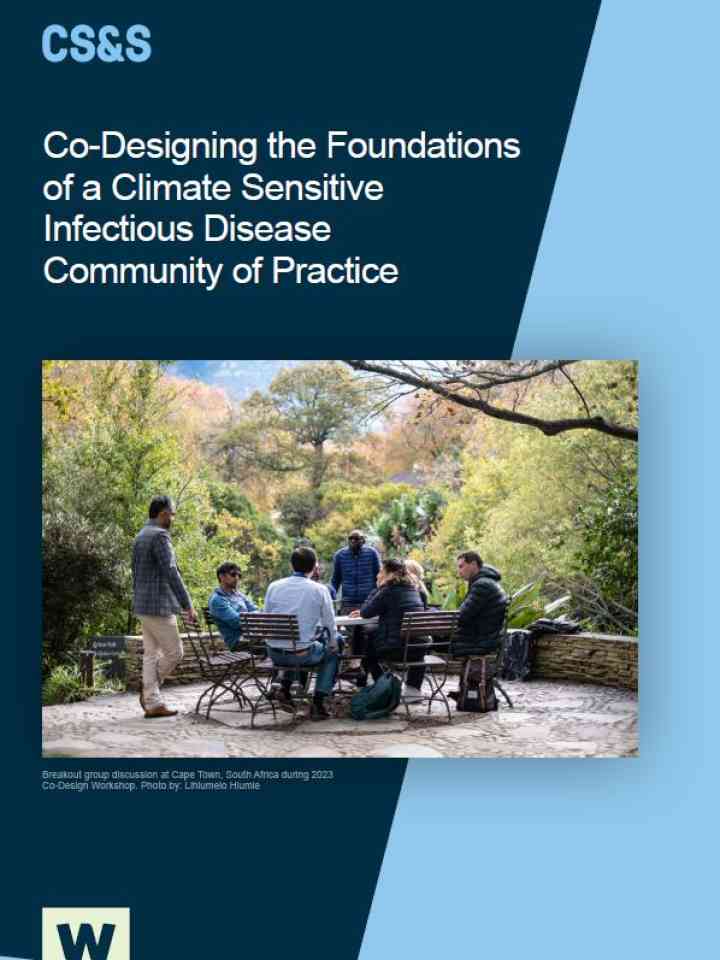Co-designing the foundations of a climate sensitive infectious disease community of practice
This report shares insights from an initial 6-month landscaping on the changes in global and regional climate patterns that are exacerbating existing health inequities and introducing novel challenges. A particularly concerning ramification of climate variation and change is its impact on the spread of infectious diseases, many of which are climate sensitive. The term Climate Sensitive Infectious Disease (CSID) refers to these infectious diseases whose transmission and spread are influenced by changes and variations in climate and weather.
In response to growing awareness about these issues, as well as advances in technologies such as artificial intelligence and machine learning, there has been an expansion of digital tools to better understand and predict the impacts of near-term and long-term shifts in climate on disease spread. If implemented well, such tools have the potential to support governments, grassroots organizations, and individuals to be better equipped and have meaningful impact on health policy. A Community of Practice (CoP) is a group of individuals who come together over shared interests, have comparable levels of domain knowledge or expertise, and interact often enough to develop a shared understanding of challenges and opportunities (Wenger 2000). In the field of open-source software, CoPs are increasingly recognized as a key piece of ensuring software sustainability and resilience. In early 2023, Code for Science & Society (CS&S) was commissioned to understand the existing communities of practice in the CSID space.
Explore further
